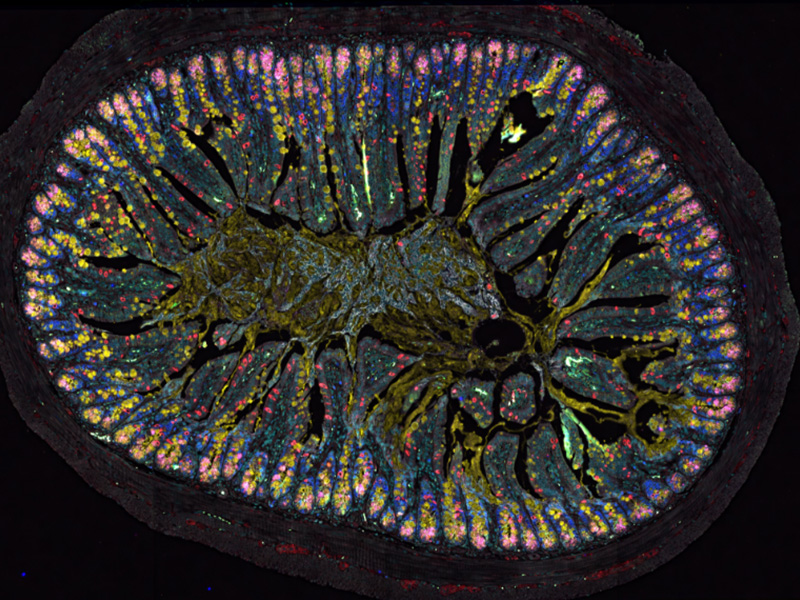Medicine
Why the "gut brain" plays a central role for allergies
Scientists from Bern and Charité (– Universitätsmedizin Berlin) have identified a previously unknown function of the intestinal nervous system. The findings open new avenues for advancing therapies for allergies and intestinal disorders.

The intestinal nervous system, often referred to as the "gut brain", is essential in controlling digestion and maintaining the intestinal barrier. This protective layer, made up of the intestinal mucosa, immune cells and the microbiome, shields the body from contents of the gut. Its effectiveness depends on the delicate balance among these components. If this balance is disrupted, inflammation, allergies or chronic intestinal diseases can arise. The intestinal mucosa serves as the body’s primary defense against pathogens. While previous studies have shown that the intestinal nervous system is involved in immune responses in addition to digestion, its role in the development of intestinal epithelial cells has remained largely unclear until now.
An international research team led by the University of Bern, Inselspital Bern, Bern University Hospital and Charité, has now shown for the first time that the intestinal nervous system acts as a central regulator of the intestinal barrier. By releasing a specific molecule, it directs the development of different cell types in the intestinal wall and in this way shapes immune responses in the intestine that can promote allergies. The results of this study were recently published in Nature Immunology.
To the media release 25.11.2025
Subscribe to the uniAKTUELL newsletter

Discover stories about the research at the University of Bern and the people behind it.

